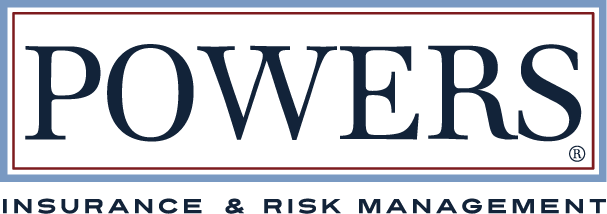When a cannabis operator thinks of insurance, typically the basic coverages are considered:
- property insurance on the facility and contents
- liability coverage for the premises and product
- workers’ comp for their employment force
- commercial auto for company-owned vehicle
While general & product liability policies cover bodily injury, property damage and personal injury, these policies will always either exclude or sub-limit civil and criminal suits pertaining to employment-related practices.
Cannabis operators face the same HR and employment-related challenges as any other industry. In the era of Covid, the emerging and growing cannabis industry is on a hiring-spree whereas other established industries are facing an employment shortage. The spotlight is on the cannabis industry not just for the repeal of prohibition and allure of the plant properties, but also because of today’s societal pressure and moral obligation to hire a diverse employment force and harbor an environment of inclusion, fairness, and safety. Cannabis operators must be intentional in their onboarding and ongoing employee training, formalized and enforced internal HR-related procedures (such as hiring, termination, discipline) and lastly, the careful selection and purchase of Employment Practices Liability insurance.
Factors contributing to cannabis operators’ employment-related liability exposures include social movements such as;
- #metoo
- generational and cultural gap amongst working Baby Boomers, Millennials and Gen Z
- gender-related pay gaps
- racial and equality tensions
- litigious and costly legal environment
What are the most common employment-related lawsuits?
The most common employment-related lawsuits involve discrimination, sexual harassment, wrongful termination, failure to promote, hostile work environment, retaliation, defamation, wage & hour disputes, and workplace violence.
Cannabis operators face potential claims from current and past employees, potential hires and the often-forgotten 3rd parties. While not all claims are founded, a legal demand requires a legal response. In other words, lawyer-up and prepare to defend and settle. Even the most prudent and cognizant cannabis operators can experience an employment-related lawsuit. Unfortunately, even unfounded claims tend to settle because the cost to defend such claims forces the decision to cut losses. If a claim is founded, lawsuit settlements could reach hundreds of thousands, even millions.
What can a Cannabis Employer do to decrease their chance of a claim?
First, manage the risk through exposure assessment, identification, and mitigation. Certainly not rocket science but many cannabis operators are spread thin and are laser focused on achieving profitability. This tends to delay the implementation of HR practices.
After having a solid hiring plan, ongoing training practices and internal HR procedures, a cannabis operator should then carefully purchase an Employment Practices Liability insurance policy. An EPL policy is designed to respond, defend, and settle 1st party (Employer) employment-related claims and, if designed properly, the policy will include coverage for 3rd party claims (customers, vendors, suppliers, the general public, social groups, etc.) as well.
Claims Examples:
1st Party – An established cannabis dispensary with a tenured, diverse team of experienced budtenders is experiencing rapid growth. In an effort to meet economic demand, the dispensary operator must hire new entry-level staff amidst a tightened employment market. To attract hires, the operator must offer a starting wage that surpasses the current staff’s pay rate. A current staff member discovers the pay gap and makes note of a racial and gender difference between the latest hire and him/herself. After consulting with an attorney, the tenured staff member claims a Federal Labor Standards Act (FLSA) violation citing racial and gender inequality and demands settlement of $100k. After the operator hires legal counsel with an upfront retainer of $5k and an estimated $15-$25k in legal fees and defense costs, the defense attorneys make the cannabis operator aware of the unlikely success in trying the case in court and the potential assessment of punitive damages (essentially, punishment by monetary demand). The operator cuts losses and settles the claim for $50k.
3rd Party – A vertical cannabis operator is expanding their product line across the state with much of the market penetration achieved through a field sales force. A skilled salesperson visits their dispensary clients twice a month to ensure their inventory is stocked, understood, and recommended by the dispensary budtenders. One of the budtenders feel the vertical operation’s salesperson’s tactics are inappropriate and feels sexually victimized by unwelcomed touches and advances. The dispensary operator notifies their product supplier partner to which a response is given “that’s just the way he is – super friendly and means no harm!”. The offended dispensary employee feels otherwise, hires an attorney, and brings forth a sexual harassment and hostile work environment lawsuit against her employer and the 3rd product supplier/vertical operator. The claimant demands $250k in pain and suffering damages and ultimately settles for $150k at mediation.
– For either claims example given above, Employment Practices Liability insurance could provide legal counsel, defend and settle the claim at mediation or upon jury verdict up to the policy’s limit of liability, subject to the deductible or retention.
An Insurance and Risk Management firm who specialize in Cannabis can provide the expertise needed to help you through a claim. Agents who do not understand employment practices, risk management services and the appropriate risk transfer products will end up causing you more work or possibly more money when a claim happens. Today’s technology affords access to easily distributed digital training content, continued education, the most recent data statistics, and tracking systems to ensure training consistency and continuity amongst an organization’s employment force. As the expert in the Cannabis Insurance Industry, Chris Sullivan is prepared to help you find the resources necessary to minimize a claim.
For a comprehensive risk management program, contact Chris Sullivan at POWERS Insurance & Risk Management. We provide personal insurance, business insurance, surety bonds, and risk management solutions. POWERS, Family-Owned and founded is 1991, is located at 6825 Clayton Ave. For more information, call (314) 725-1414 or visit www.POWERSInsurance.com.
